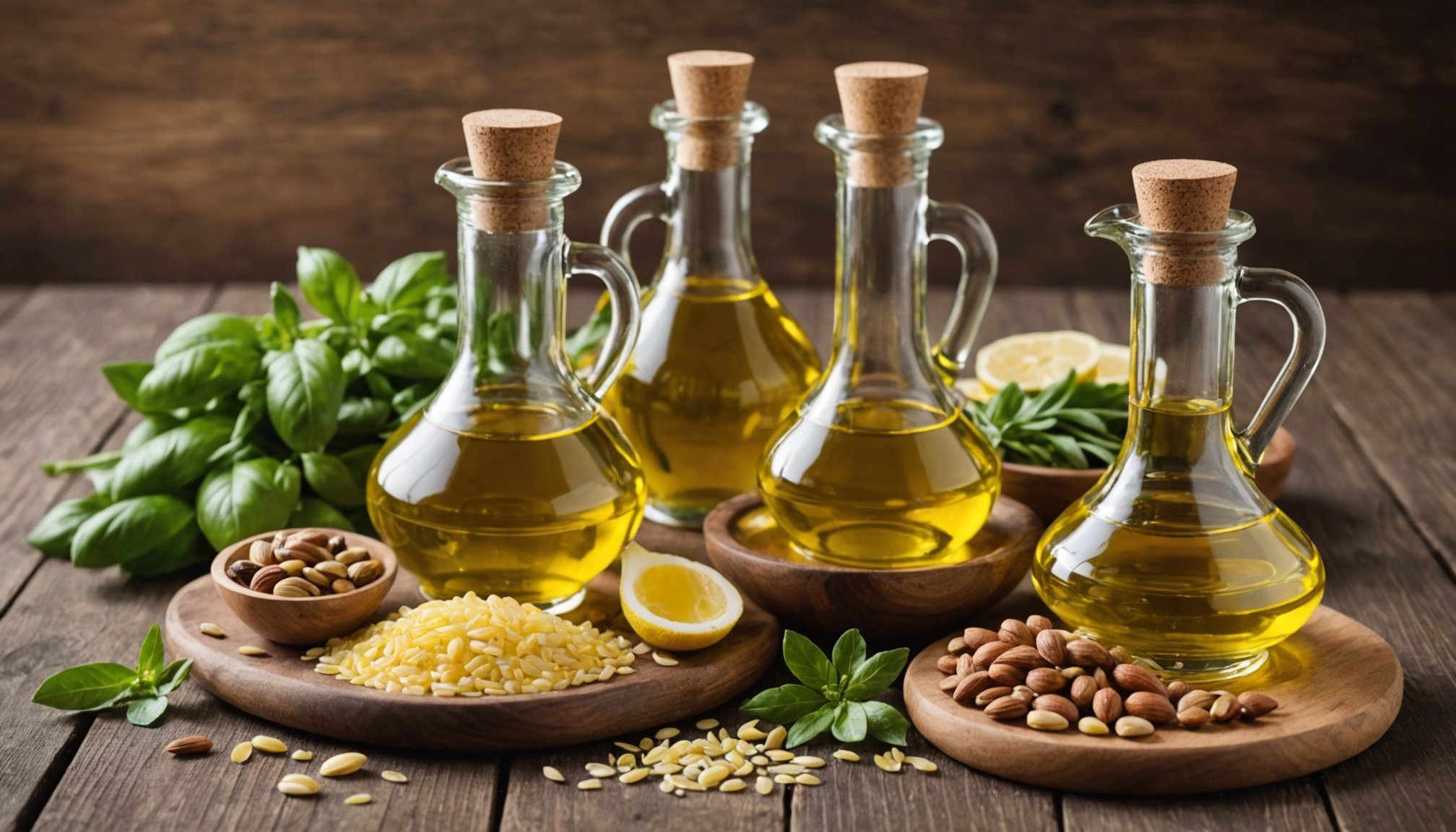In your quest for a healthier lifestyle, the choices you make in the kitchen can significantly impact your overall well-being. Cooking oils are fundamental in many recipes, but not all oils contribute equally to a lower-calorie diet. Understanding which oils to incorporate into your cooking can help you maintain flavor while managing calorie intake. In this article, we will explore several types of healthy cooking oils, their benefits, and how to use them effectively to support your dietary goals.
Understanding Healthy Cooking Oils
Before diving into specific types of cooking oils, it’s crucial to grasp what makes an oil healthy. Healthy cooking oils are typically low in saturated fats, high in monounsaturated fats, or contain beneficial omega-3 fatty acids. These oils can enhance your meals without adding unnecessary calories or compromising nutritional value.
Additional reading : How can I incorporate more fish into my diet for better health?
When selecting cooking oils, consider their smoke point—the temperature at which the oil begins to smoke and break down, potentially releasing harmful compounds. Oils with higher smoke points are ideal for frying and sautéing, while those with lower smoke points are better suited for dressings or low-heat cooking.
Moreover, oils contain essential fatty acids that your body requires for various functions, including hormone regulation and brain health. By understanding the properties of each oil, you can make informed choices that align with your lower-calorie dietary objectives.
Also to read : What are some easy meal ideas for maintaining a plant-based diet?
Olive Oil – A Mediterranean Staple
Olive oil is often heralded as one of the healthiest cooking oils available. It’s a key component of the Mediterranean diet, which is associated with numerous health benefits, including reduced risks of heart disease and obesity. This oil is primarily composed of monounsaturated fats, which can help improve cholesterol levels.
In terms of calorie content, olive oil has approximately 119 calories per tablespoon, but its rich flavor allows you to use less without sacrificing taste. Use olive oil for sautéing vegetables, drizzling over salads, or marinating meats. The oil’s versatility makes it a fantastic choice for various dishes.
In addition to its culinary uses, olive oil is packed with antioxidants and anti-inflammatory properties. Extra virgin olive oil, in particular, retains the most nutrients and flavor as it is less processed. When selecting olive oil, look for dark bottles to protect it from light and choose oils labeled as ‘extra virgin’ for the highest quality. Incorporating olive oil into your diet can help you enjoy flavorful meals while supporting your lower-calorie diet.
Avocado Oil – The Nutrient Powerhouse
Avocado oil has gained popularity in recent years for its health benefits and versatility in cooking. Extracted from the flesh of avocados, this oil contains heart-healthy monounsaturated fats similar to olive oil. Additionally, avocado oil is rich in nutrients, including vitamin E, which supports skin health and may help reduce inflammation.
With a high smoke point of around 520°F (271°C), avocado oil is excellent for high-heat cooking methods like frying and grilling. This characteristic makes it a versatile choice for various cuisines. The caloric density of avocado oil is similar to that of olive oil, providing about 124 calories per tablespoon. However, its creamy texture and subtle flavor can elevate dishes ranging from salad dressings to roasted vegetables.
Incorporating avocado oil into your meals can also boost nutrient absorption. Some studies suggest that consuming avocado oil with vegetables enhances the bioavailability of carotenoids, essential for maintaining good health. This means that using avocado oil not only adds flavor but also helps your body absorb more nutrients from your food, making it a wise choice for those pursuing a lower-calorie diet.
Coconut Oil – The Controversial Choice
Coconut oil often sparks debate regarding its health benefits due to its high saturated fat content. However, it’s essential to understand that not all saturated fats are created equal. The saturated fats in coconut oil come mostly from medium-chain triglycerides (MCTs), which are metabolized differently than long-chain fatty acids found in many other fats.
Coconut oil has about 117 calories per tablespoon and can be a flavorful addition to various recipes. It works well in baking, sautéing, and even adding a tropical flair to smoothies. Its unique flavor can enhance dishes like stir-fries or baked goods, contributing to a delightful taste experience without excess calories.
While some studies suggest that the MCTs in coconut oil may promote weight loss by increasing energy expenditure, moderation is key. To enjoy the benefits of coconut oil while adhering to a lower-calorie diet, consider using it sparingly, allowing you to maintain flavor without compromising your health goals.
Canola Oil – The Everyday Oil
Canola oil is often regarded as one of the most versatile and widely used cooking oils. Extracted from the seeds of the canola plant, it is low in saturated fat and high in monounsaturated fats, making it a heart-healthy option. With about 124 calories per tablespoon, it’s comparable in caloric content to other oils.
One of the significant advantages of canola oil is its high smoke point, around 400°F (204°C), making it suitable for frying, baking, and sautéing. Its neutral flavor allows it to blend seamlessly into various dishes, from salad dressings to marinades. Additionally, canola oil is a source of omega-3 and omega-6 fatty acids, essential for maintaining good health.
When choosing canola oil, it’s advisable to opt for refined versions that have undergone minimal processing. This ensures that you’re getting a product that retains its beneficial properties while avoiding unnecessary additives or impurities. Using canola oil in your cooking can provide you with a practical and effective way to enhance flavors while keeping your calorie intake in check.
Making the right choices in cooking oils can significantly influence your journey towards a lower-calorie diet. By incorporating healthy oils like olive, avocado, coconut, and canola, you can enjoy flavorful meals without compromising your health goals. Remember to consider the smoke points and nutritional profiles of each oil, allowing you to select the best option for your cooking method.
The key lies in moderation and balance. With the right oils, you can create delicious dishes that not only satisfy your palate but also contribute positively to your overall health. Exploring these options will empower you to make informed decisions, enhancing your culinary experiences while supporting your dietary objectives.











